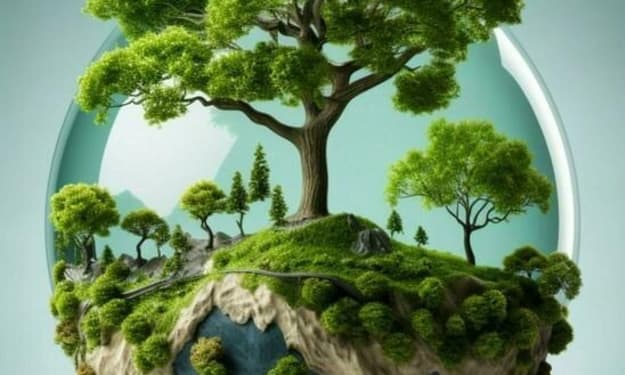28 reasons to start conserving water
Start conserving water now!

Water is absolutely necessary for life. It plays a vital role in the functioning of our bodies and the survival of all living organisms.
Water is essential for maintaining proper hydration levels in our bodies. It helps regulate body temperature, lubricate joints, and transport nutrients and oxygen to cells.
Water is involved in various metabolic processes in our bodies, including digestion, absorption, and transportation of nutrients. It also aids in the breakdown of food and the elimination of waste products.
Water is a key component of bodily fluids such as blood, saliva, and mucus. It helps in the circulation of blood, the lubrication of joints, the cushioning of organs, and the protection of tissues.
Conserving water is crucial for the sustainability of our planet and the well-being of future generations. Here are 28 reasons why it is important to conserve water:
1. Water scarcity: Many regions around the world are already experiencing water scarcity, and conservation can help mitigate this issue.
2. Drought prevention: Conserving water helps prevent droughts, which can have devastating effects on agriculture, ecosystems, and communities.
3. Preserving ecosystems: Water conservation maintains the health of aquatic ecosystems, including rivers, lakes, and wetlands, which are vital habitats for various plants and animals.
4. Protecting biodiversity: By conserving water, we safeguard the diverse range of species that depend on aquatic ecosystems.
5. Sustaining fisheries: Healthy water systems support fish populations, ensuring a stable source of food and livelihoods for many communities.
6. Protecting wildlife: Water conservation helps provide habitats and drinking water sources for wildlife, contributing to their survival.
7. Preserving natural landscapes: Conserving water ensures that natural landscapes, such as forests and grasslands, can thrive and provide essential ecosystem services.
8. Mitigating climate change: Water conservation reduces energy consumption associated with water treatment and transportation, leading to fewer greenhouse gas emissions.
9. Saving energy: Treating and distributing water requires significant energy inputs, so conserving water indirectly reduces energy consumption.
10. Reducing pollution: By using water more efficiently, we decrease the need for chemical treatments and reduce pollution in water bodies.
11. Preserving water quality: Conserving water helps maintain the quality of our freshwater sources, making them safer for human and animal consumption.
12. Ensuring public health: Adequate water supplies are essential for sanitation, hygiene, and preventing the spread of waterborne diseases.
13. Supporting agriculture: Efficient water use in agriculture ensures sustainable food production, even in areas prone to water scarcity.
14. Securing food supply: By conserving water, we can help prevent food shortages caused by water limitations and ensure food security for the future.
15. Saving money: Water conservation reduces water bills for individuals, businesses, and governments, leading to cost savings.
16. Promoting responsible water use: Conservation practices raise awareness about the value of water and encourage responsible water use habits.
17. Fostering innovation: The need for water conservation drives innovation in water-efficient technologies, creating opportunities for sustainable economic development.
18. Enhancing water management: Conservation measures improve water management practices, making water supplies more reliable and sustainable.
19. Preserving cultural heritage: Many cultural traditions and practices are closely tied to water sources, and conserving water helps preserve these heritage sites.
20. Preventing soil erosion: Proper water management through conservation techniques minimizes soil erosion, preserving fertile land for agriculture.
21. Protecting groundwater: By using water efficiently, we reduce the strain on groundwater resources and prevent overextraction.
22. Conserving energy resources: Water conservation indirectly saves energy resources required for water extraction, treatment, and distribution.
23. Supporting industries: Water-intensive industries, such as manufacturing and power generation, benefit from water conservation by ensuring a sustainable water supply.
24. Promoting sustainable development: Water conservation aligns with the principles of sustainable development, ensuring the long-term well-being of communities and the environment.
25. Enhancing water resilience: Conserving water builds resilience to climate change impacts, such as prolonged droughts and extreme weather events.
26. Educating future generations: By practicing and promoting water conservation, we educate younger generations about the importance of natural resource stewardship.
27. Empowering local communities: Water conservation efforts empower communities to take control of their water resources, fostering local resilience and self-sufficiency.
28. Conserving wetlands: Wetlands act as natural water filters, and water conservation helps protect these valuable ecosystems.
About the Creator
Shamreena
Spread love and be loved by love💌.
Enjoyed the story? Support the Creator.
Subscribe for free to receive all their stories in your feed. You could also pledge your support or give them a one-off tip, letting them know you appreciate their work.






Comments (2)
Freshwater is a limited and essential resource. Conserving water helps maintain the balance of ecosystems, prevents degradation of aquatic habitats, and supports the survival of various plant and animal species that depend on water sources. The article How Much Does a Reverse Osmosis System Cost: The Ultimate Guide to Safe Drinking Water https://purewaterblog.com/how-much-does-a-reverse-osmosis-system-cost/ serves as a powerful reminder of the irreplaceable value of freshwater and the intricate relationships that tie us to the natural world. Its insights encourage readers to not only contemplate the financial aspects of water treatment but to also grasp the profound implications of their water usage on the delicate balance of ecosystems.
Conserving water is crucial for a variety of reasons, ranging from ensuring a sustainable environment to supporting human well-being and economic stability.